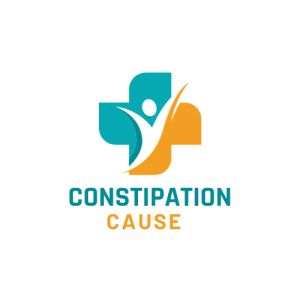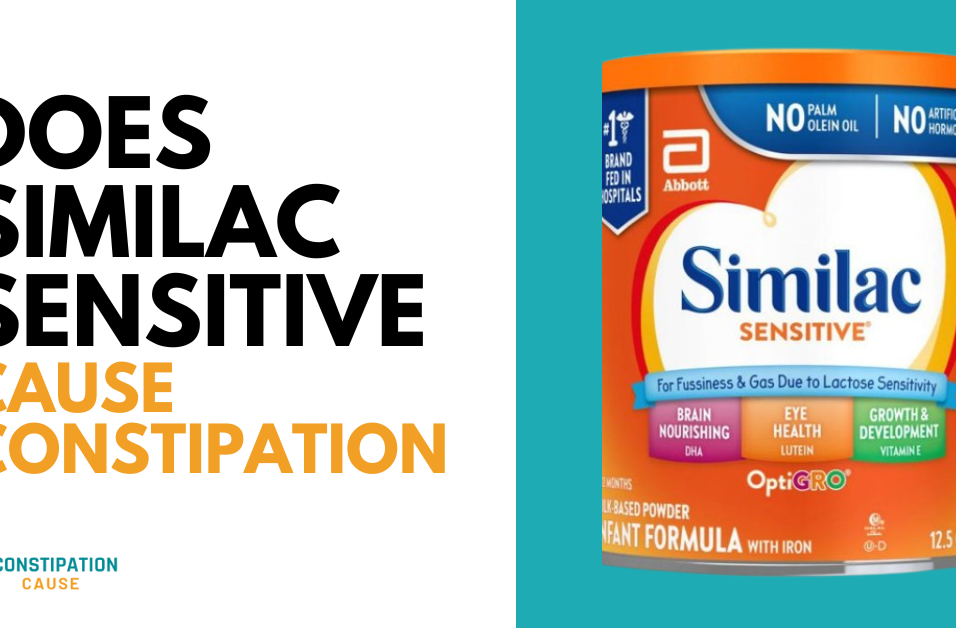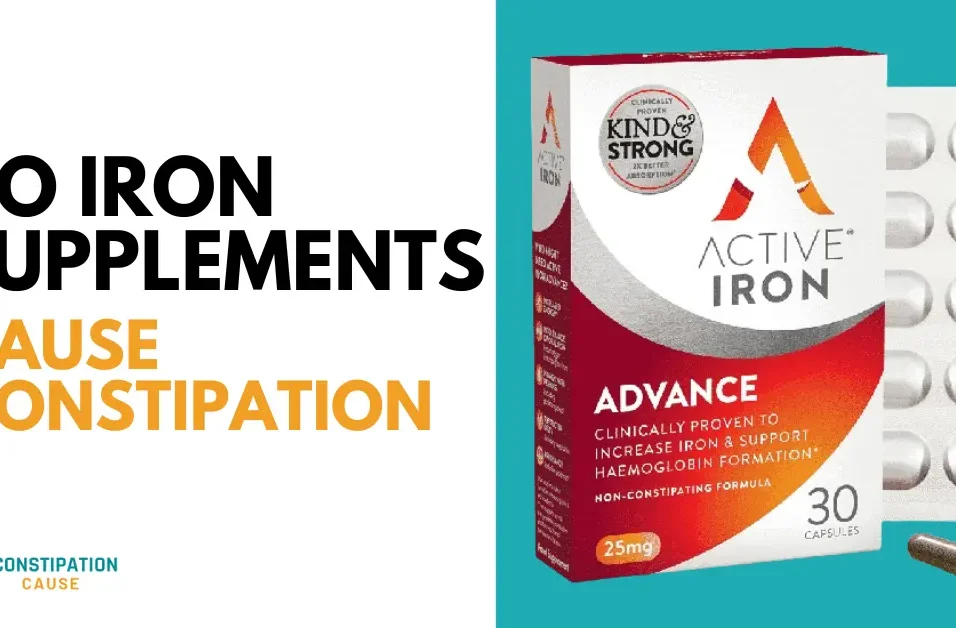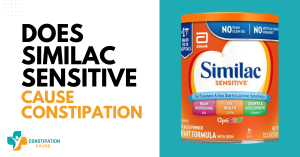Imagine you’re sipping on a refreshing glass of orange juice, indulging in the tangy sweetness of citrus, all while contemplating the wonders of vitamin C. It’s a nutrient that often takes the spotlight for its immune-boosting properties and skin-rejuvenating effects. But amidst its fame, there lies a curious question: does vitamin C cause constipation?
Can this beloved nutrient, when consumed in high doses, turn from a health ally to a foe, causing consternation in the realm of digestion?
Well, you don’t have to spend hours searching for the right answer because we have got it all covered. In this article we will discuss in detail whether vitamin c causes constipation or not. So, let’s get started.
Understanding Vitamin C
Vitamin C, or ascorbic acid, is a vital water-soluble nutrient with antioxidant properties essential for numerous bodily functions. It supports collagen synthesis, immune function, and helps combat oxidative stress. Common dietary sources include citrus fruits, berries, bell peppers, and leafy greens, while supplements offer an alternative for those with limited access to fresh produce. Ensuring adequate intake of vitamin C through a balanced diet promotes overall health and well-being.
Vitamin C and Digestive Health
Vitamin C interacts dynamically with the digestive system, exerting notable effects on gastrointestinal function. Contrary to popular belief, vitamin C does not typically cause constipation; rather, it often aids in alleviating this issue.
Within the digestive tract, vitamin C acts as an osmotic agent, meaning it attracts water into the intestines, thereby softening stool and facilitating bowel movements. This mechanism contributes to its positive impact on digestive health, promoting regularity and preventing constipation.
Additionally, vitamin C supports the integrity of the gastrointestinal mucosa and aids in collagen synthesis, vital for the maintenance and repair of gut tissues. By bolstering gut health, vitamin C may indirectly alleviate constipation by ensuring optimal digestive function.
It’s worth noting that while vitamin C an enhance bowel movements, excessive intake may lead to diarrhea in some individuals. However, when consumed within recommended levels, vitamin C is unlikely to cause adverse digestive effects.
Does Vitamin C Cause Constipation?
No, vitamin C does not typically cause constipation.
Vitamin C is known for its osmotic effect in the digestive system, meaning it attracts water into the intestines, softening stool and aiding in bowel movements. This mechanism usually contributes to preventing constipation and promoting regularity.
While some studies suggest that extremely high doses of vitamin C may lead to gastrointestinal discomfort, including constipation, such occurrences are rare and typically associated with intakes far exceeding recommended levels.
Furthermore, vitamin C’s interaction with other nutrients or medications could influence its effects on bowel function. For instance, excessive consumption of vitamin C alongside certain mineral supplements, such as calcium or iron, might interfere with their absorption and potentially contribute to constipation.
Factors Influencing Vitamin C-Induced Digestive Effects
Various factors can influence how vitamin C affects digestion, ranging from individual differences to dietary habits and concurrent medication use.
- Dosage: The amount of vitamin C consumed plays a significant role in its digestive effects. While moderate doses typically promote bowel regularity, excessive intake may lead to gastrointestinal disturbances such as diarrhea or, less commonly, constipation.
- Individual Sensitivity: Individuals may exhibit varying sensitivities to vitamin C, influencing how their bodies respond to different dosages. Some people may tolerate higher doses without experiencing adverse digestive effects, while others may be more prone to gastrointestinal discomfort even with modest amounts.
- Hydration Status: Vitamin C’s osmotic action relies on adequate hydration to soften stool and facilitate bowel movements. Insufficient fluid intake alongside vitamin C supplementation may diminish its efficacy in preventing constipation or could potentially exacerbate gastrointestinal issues.
- Nutrient Interactions: Vitamin C’s interaction with other nutrients or medications can affect its digestive effects. For instance, consuming vitamin C alongside certain minerals like calcium or iron may interfere with their absorption, potentially contributing to constipation or other gastrointestinal disturbances.
- Duration of Use: The duration of vitamin C supplementation may influence its digestive effects. Short-term use may be less likely to cause gastrointestinal issues compared to prolonged or excessive intake, which could disrupt digestive processes and lead to discomfort.
- Overall Diet: Dietary habits, including intake of fiber, fats, and other nutrients, can influence how vitamin C affects digestion. A balanced diet rich in fiber and hydration can complement vitamin C’s digestive benefits, while a diet lacking in these elements may exacerbate gastrointestinal issues.
- Underlying Health Conditions: Individuals with preexisting gastrointestinal conditions or sensitivities may be more susceptible to digestive disturbances from vitamin C supplementation. It’s essential for such individuals to consult healthcare professionals before initiating vitamin C supplementation to minimize potential adverse effects.
Does Excess Vitamin C Cause Constipation?
The amount of vitamin C consumed can significantly impact digestive outcomes. While vitamin C is generally known for promoting bowel regularity, the dosage plays a crucial role in determining its effects on digestion.
Moderate doses of vitamin C typically aid in softening stool and facilitating bowel movements by drawing water into the intestines. This osmotic effect can help prevent constipation and promote regularity. However, excessive intake of vitamin C beyond the body’s capacity for absorption may lead to gastrointestinal disturbances, such as diarrhea or abdominal discomfort.
It’s important for individuals to adhere to recommended daily intake levels of vitamin C, which vary based on factors such as age, sex, and overall health status. Consulting healthcare professionals can provide personalized guidance on appropriate dosage to optimize digestive health outcomes while minimizing the risk of adverse effects.
Vitamin C and Digestive Health
Vitamin C interacts dynamically with the digestive system, exerting notable effects on gastrointestinal function. Contrary to popular belief, vitamin C does not typically cause constipation; rather, it often aids in alleviating this issue.
Within the digestive tract, vitamin C acts as an osmotic agent, meaning it attracts water into the intestines, thereby softening stool and facilitating bowel movements. This mechanism contributes to its positive impact on digestive health, promoting regularity and preventing constipation.
Additionally, vitamin C supports the integrity of the gastrointestinal mucosa and aids in collagen synthesis, vital for the maintenance and repair of gut tissues. By bolstering gut health, vitamin C may indirectly alleviate constipation by ensuring optimal digestive function.
It’s worth noting that while vitamin C can enhance bowel movements, excessive intake may lead to diarrhea in some individuals. However, when consumed within recommended levels, vitamin C is unlikely to cause adverse digestive effects.
Individual Variations
Individual differences in tolerance to vitamin C play a significant role in determining the impact of supplementation on digestive health. While some individuals may tolerate higher doses of vitamin C without experiencing adverse effects, others may be more sensitive and prone to gastrointestinal discomfort even with modest amounts.
Factors such as age, underlying health conditions, and genetic variations can influence individual tolerance to vitamin C. For example, individuals with preexisting gastrointestinal conditions or sensitivities may be more susceptible to digestive disturbances from vitamin C supplementation. Additionally, certain medications or dietary habits may interact with vitamin C and affect its tolerability.
Form of Vitamin C
- Natural Sources: Vitamin C obtained from natural sources, such as fruits and vegetables, often comes packaged with additional nutrients, fiber, and phytochemicals. These components can influence digestive responses by promoting gut health, supporting beneficial gut bacteria, and enhancing overall nutrient absorption. Additionally, natural sources of vitamin C are typically well-tolerated and may have a gentler effect on digestion compared to isolated supplements.
- Supplements: Vitamin C supplements, including tablets, capsules, and powders, provide concentrated doses of the vitamin without the accompanying nutrients found in natural sources. While supplements offer convenience and precise dosing, they may be more likely to cause digestive disturbances, especially when taken in high doses or on an empty stomach. Certain forms of vitamin C supplements, such as buffered or esterified variants, may be gentler on the stomach and less likely to cause gastrointestinal discomfort.
Does Vitamin C 1000 mg Cause Constipation?
While vitamin C supplements are generally well-tolerated by most individuals, taking high doses, such as 1000 mg or higher, may lead to gastrointestinal discomfort, including constipation, in some cases. The osmotic effect of vitamin C, which draws water into the intestines, can contribute to softer stool and promote bowel movements. However, excessive intake of vitamin C beyond the body’s capacity for absorption may overwhelm the digestive system, potentially disrupting bowel regularity and causing constipation. It’s essential for individuals considering high-dose vitamin C supplementation to be mindful of their tolerance levels and consult healthcare professionals for personalized guidance. Adjusting the dosage and ensuring adequate hydration may help mitigate the risk of constipation associated with high-dose vitamin C intake.
Does High Dose Vitamin C Cause Constipation?
High doses of vitamin C, particularly in the range of 1000 mg or higher, may increase the risk of gastrointestinal disturbances, including constipation. While vitamin C is renowned for its antioxidant properties and various health benefits, including immune support and collagen synthesis, excessive intake beyond recommended levels may overwhelm the digestive system. The osmotic effect of vitamin C, which draws water into the intestines, can soften stool and promote bowel movements. However, excessively high doses may exceed the body’s capacity for absorption, leading to digestive issues such as constipation. It’s essential for individuals considering high-dose vitamin C supplementation to carefully monitor their intake and consult healthcare professionals for personalized guidance.
Does Zinc and Vitamin C Cause Constipation?
High doses of vitamin C, particularly when combined with zinc supplements, may lead to gastrointestinal discomfort, including constipation, in susceptible individuals. While both vitamin C and zinc are essential nutrients with numerous health benefits, including immune support and wound healing, their combined use in high doses may overwhelm the digestive system. Zinc is known to have constipating effects in some individuals, and when taken alongside high doses of vitamin C, the risk of gastrointestinal disturbances may increase. Individuals considering supplementation with both vitamin C and zinc should be mindful of their combined intake and consult healthcare professionals for personalized recommendations to minimize the risk of constipation.
Does Buffered Vitamin C Cause Constipation?
Buffered forms of vitamin C, designed to be gentler on the stomach, are less likely to cause constipation compared to regular vitamin C supplements. Buffered vitamin C formulations typically contain additional alkaline compounds, such as calcium ascorbate or magnesium ascorbate, which help neutralize the acidic nature of vitamin C. This buffering effect may reduce the risk of gastrointestinal discomfort, including constipation, commonly associated with regular vitamin C supplements. However, individual responses to buffered vitamin C may vary, and individuals experiencing digestive issues should consult healthcare professionals for personalized recommendations.
Does Lack of Vitamin C Cause Constipation?
Conversely, a lack of vitamin C in the diet may contribute to constipation due to its role in promoting bowel regularity and softening stool. Vitamin C plays a crucial role in maintaining digestive health by supporting the integrity of the gastrointestinal tract and facilitating the absorption of nutrients. Inadequate intake of vitamin C may lead to compromised bowel function, potentially resulting in constipation. Therefore, ensuring an adequate intake of vitamin C from dietary sources, such as fruits and vegetables, is essential for supporting optimal digestive health and preventing constipation. Individuals experiencing digestive issues should consult healthcare professionals for personalized recommendations to address vitamin C deficiencies and promote digestive wellness.
Managing Digestive Issues with Vitamin C
For individuals experiencing constipation with vitamin C intake, several strategies can help alleviate symptoms and optimize digestive health:
- Adjust Dosage: If constipation occurs after taking vitamin C supplements, consider reducing the dosage. Gradually decrease the amount until symptoms improve or consult with a healthcare professional for personalized guidance.
- Hydration: Ensure adequate hydration by drinking plenty of water throughout the day. Vitamin C’s osmotic effect relies on sufficient fluid intake to soften stool and facilitate bowel movements.
- Dietary Fiber: Increase dietary fiber intake from sources such as fruits, vegetables, whole grains, and legumes. Fiber promotes regularity by adding bulk to stool and facilitating its passage through the digestive tract.
- Natural Sources: Opt for vitamin C-rich foods from natural sources, such as citrus fruits, berries, bell peppers, and leafy greens. These foods contain additional nutrients and fiber, which may help mitigate digestive issues associated with vitamin C supplementation.
- Spread Out Intake: Instead of taking a large dose of vitamin C all at once, consider spreading out intake throughout the day. This approach may reduce the likelihood of overwhelming the digestive system and minimize the risk of constipation.
- Consider Buffered Formulas: Buffered vitamin C supplements, which are less acidic, may be gentler on the stomach and less likely to cause digestive discomfort. Experimenting with different forms of vitamin C supplements can help identify the most tolerable option.
- Consult Healthcare Professional: If constipation persists or worsens despite adjustments in dosage and dietary habits, consult with a healthcare professional. They can evaluate individual needs, provide personalized recommendations, and rule out any underlying medical conditions contributing to digestive issues.
Combining Vitamin C with Other Nutrients
- Pairing vitamin C with plant-based iron sources boosts iron absorption.
- Combining vitamin C with minerals like calcium or magnesium may prevent gastrointestinal issues.
- Vitamin C, alongside antioxidants like vitamin E and beta-carotene, supports gut health.
- A balanced diet, including vitamin C-rich foods, fosters overall digestive well-being.
Reasons to Consume Vitamin C
- Supports immune function, collagen synthesis, and wound healing.
- Acts as an antioxidant, protecting cells from oxidative damage.
- Promotes cardiovascular health and iron absorption.
- May aid in preventing constipation when consumed within recommended levels.
- Enhances overall well-being by supporting digestive health and nutrient absorption.
Vitamin C-Rich Recipes for Digestive Wellness
- Citrusy Kale Salad: Toss together chopped kale, segments of oranges and grapefruits, sliced bell peppers, and avocado. Dress with a light vinaigrette made with lemon juice, olive oil, and a touch of honey.
- Berry-Banana Smoothie: Blend together frozen mixed berries, a ripe banana, spinach leaves, and a splash of orange juice for a refreshing and fiber-rich smoothie packed with vitamin C.
- Roasted Bell Pepper and Tomato Soup: Roast red bell peppers and tomatoes until charred, then blend with vegetable broth, garlic, onions, and a hint of chili flakes. Serve hot with a sprinkle of fresh parsley.
- Grilled Citrus Salmon: Marinate salmon fillets in a mixture of orange juice, lemon zest, minced garlic, and olive oil. Grill until cooked through and serve with a side of steamed broccoli and quinoa.
- Tropical Fruit Salad: Combine diced pineapple, mango, kiwi, and strawberries in a bowl. Squeeze fresh lime juice over the fruits and toss gently to coat. Serve chilled for a refreshing and vitamin C-rich dessert.
Conclusion:
In conclusion, vitamin C plays a pivotal role in supporting various aspects of health, including immune function, collagen synthesis, and antioxidant protection. While it can promote digestive wellness by aiding in bowel regularity and nutrient absorption, it’s essential to balance its consumption to avoid potential gastrointestinal discomfort. By incorporating vitamin C-rich foods into a balanced diet and considering individual tolerances and preferences, individuals can harness its benefits for overall health and well-being. Remember, moderation and diversity in dietary choices are key to reaping the full advantages of vitamin C while ensuring optimal digestive health.
I hope this article answered your question, “does vitamin C cause constipation?”
Frequently Asked Questions
Does vitamin C cause constipation?
No, vitamin C typically does not cause constipation.
How much vitamin C is too much and can lead to digestive issues?
Excessive intake of vitamin C beyond recommended levels may lead to digestive issues.
Are certain forms of vitamin C more likely to cause constipation?
Buffered or esterified forms of vitamin C are less likely to cause constipation.
Can vitamin C supplements be taken to relieve constipation?
Vitamin C supplements can be taken to relieve constipation in some cases.
Are there any side effects of long-term vitamin C use on digestion?
Long-term vitamin C use may lead to gastrointestinal disturbances in some individuals.
Can vitamin C-rich foods be safely consumed by individuals with digestive conditions?
Vitamin C-rich foods can generally be safely consumed by individuals with digestive conditions, but individual tolerance may vary.









Leave feedback about this